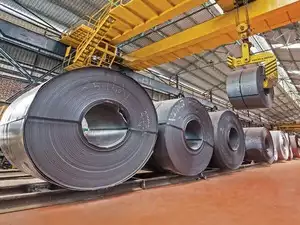India’s steel industry is poised for significant expansion, with plans to add approximately 23 million tonnes (MT) of crude steel capacity between FY24 and FY27, according to a report by Nomura. The industry is expected to reflect a compounded annual growth rate (CAGR) of 4.8%, aligning with its long-term average growth from FY15 to FY24.
Despite this substantial increase in capacity, experts believe the Indian steel sector is entering a favourable phase. The report highlights that major steel players such as JSW, JSPL, Tata Steel, and ArcelorMittal & Nippon Steel are projected to account for nearly 87% of the ongoing capacity expansion.
JSW Steel plans to add 7 MT by FY28 at a 5% CAGR over FY24-28, while JSPL aims to increase capacity by 6.3 MT by FY27 at an 18% CAGR over FY24-27. Despite a conservative assumption of 6% CAGR in steel demand through FY27 (compared to 7% over the past 5 years), capacity additions are expected to lag behind demand growth.
This dynamic could improve the domestic supply-demand balance, reducing export dependence for volume growth. Analysts indicate that India’s steel companies are well-positioned within the global metals sector, benefiting from operating at the lower end of the global cost curve due to competitive labour costs and iron ore prices.
Future expansion is anticipated to be driven mainly by brownfield projects, with strong domestic demand further reducing reliance on exports. India’s steel production has grown at a 6% CAGR between 2019 and 2023, significantly outpacing China’s 1% growth and the 1% decline observed worldwide. Given these factors, Indian steel companies are the most competitive producers globally, offering substantial growth potential in the coming years.



